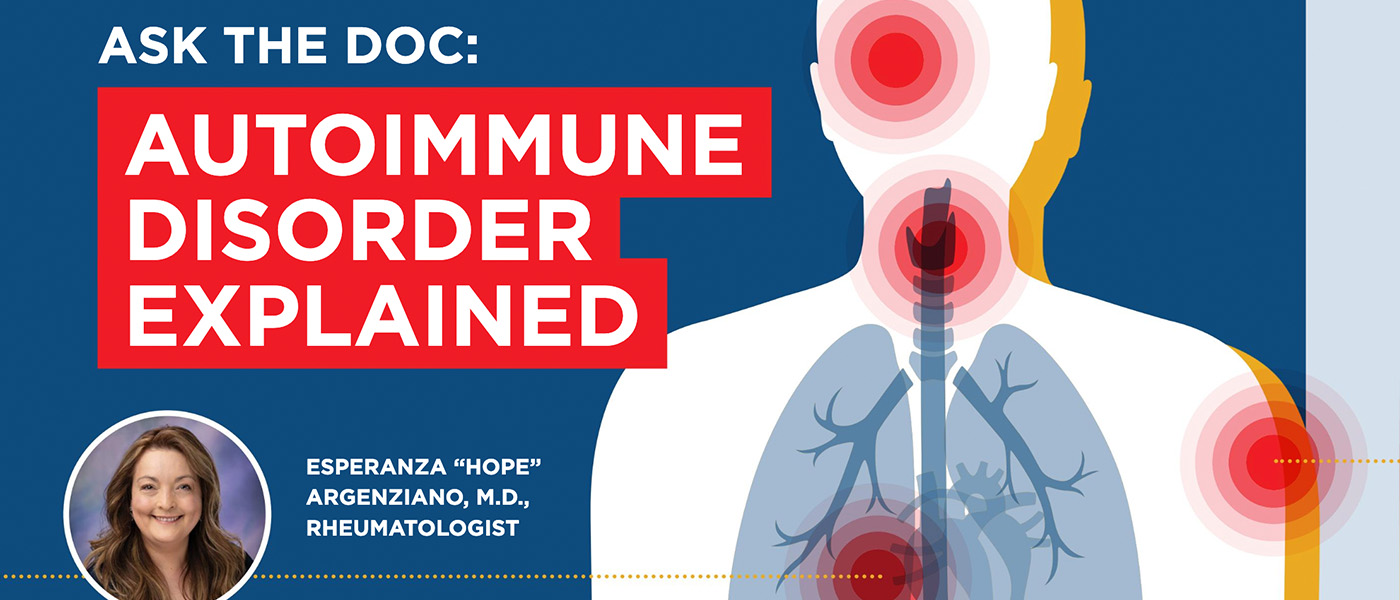Dr. Argenziano, (or “Dr. Hope” as she is sometimes known) is a board-certified rheumatologist at Monument Health Rapid City Clinic, Flormann Street.
She is a U.S. Air Force veteran who herself suffers from an autoimmune disease called lupus. Her illness cut short her promising military career, but Dr. Argenziano used her experience with lupus to transition to health care so that she could help others who experience autoimmune conditions.
One in 15 people in the United States is afflicted with some sort of an autoimmune disorder. An autoimmune disease is a noncommunicable condition that occurs when the internal self-defense mechanism is triggered to attack cells or tissues within its own body. There are over 100 acknowledged autoimmune disorders, and the symptoms can range from skin lesions, to bowel inflammation to joint pain. Why the body attacks itself in this way is unknown.
What is a rheumatologist?
A rheumatologist is a physician who has undergone internal medicine training initially and is board-certified in internal medicine, then goes on to a rheumatology fellowship for 2 to 3 years where they are mainly treating rheumatology patients. Rheumatologists see patients who need evaluation for diseases such as lupus and lupus-like diseases as well as vasculitis, rheumatoid arthritis, spondyloarthritis and other inflammatory arthritides, such as gout.
What are some common autoimmune conditions?
The most common autoimmune conditions seen by a rheumatologist include rheumatoid arthritis, psoriatic arthritis, gout, lupus, Sjögren syndrome, vasculitis and scleroderma. There are multiple other autoimmune diseases that are not treated by a rheumatologist, which include multiple sclerosis, Crohn’s disease and ulcerative colitis, skin psoriasis, Graves’ disease and Hashimoto’s thyroiditis.
Are these harder to diagnose or treat?
Rheumatologic conditions can be difficult to diagnose, especially in the early stages. In the early stages of disease, a patient may not have all of the symptoms or all of the positive blood testing to make a clear cut diagnosis. Rheumatologic conditions can also be difficult to treat as the same medication does not work for every patient with this specific condition. It may take 2–3 trials of medications before a patient’s symptoms are improved. Our goal of treatment is to get them to low disease activity or remission.
What are common misconceptions of autoimmune conditions?
One misconception is that autoimmune diseases can be cured. Unfortunately, there is no cure for most autoimmune conditions. Another misconception is that patients can get treated for specific conditions and then stop their medications. In fact, most patients with a rheumatologic condition often require treatment throughout their lifetime.
What advances are you seeing in your field that will help patients?
We continue to see advances in medications for rheumatologic diseases. New treatments for rheumatoid arthritis, vasculitis and lupus are constantly being researched. Rheumatology researchers also are continuing to find more advanced ways of diagnosing patients early and also trying to discover ways of testing the patient
to see what therapy will work best for them.

